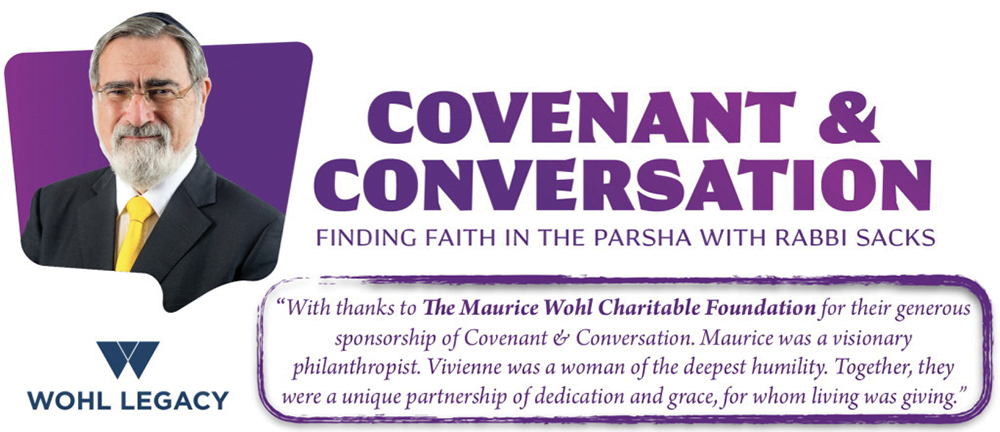Editor’s note: This drasha was delivered this past Shabbat at the Young Israel of Teaneck.
If I had to choose one theme that runs through last week in Parshas Vayeshev and Parshas Miketz, the answer would be dreams. Parshas Vayeshev begins with Yosef describing his two dreams, presumably about his future leadership, to his brothers and father. The same parsha ends with the dreams of Pharaoh’s butler and baker, interpreted by Yosef while they are all in prison. And then, this week’s parsha also begins with two more dreams, the dreams that Pharaoh has, and which Yosef interprets, leading to his meteoric rise to become the viceroy of Egypt. And the truth is, dreams play an important role in Yaakov’s life as well. It is his dream about the ladder that reassures him all will be OK as he leaves Eretz Yisrael, and it is a dream that leads him to finally leave the house of Lavan and come back home.
But even as there seems to be one, unifying theme of dreams, there is a significant shift that takes place in the story as well. Initially, Yaakov and Yosef are the dreamers. They have dreams about their relationship with Hashem and promises about the future of their people. By the time Yosef is in Egypt, however, things have changed. Now it is the butler, the baker and Pharaoh who are dreaming, and Yosef’s role is to interpret those dreams. What is the significance of this change?
Rav Nissan Alpert was a rosh yeshiva and rosh kollel in Yeshiva University in the 1970s, a great talmid chacham and a community rav, and he wrote a sefer called Limudei Nisan. He explains this transition from Yaakov and Yosef as dreamers to Yosef as the interpreter of dreams as follows: Yosef is often described as the ultimate example of the Jew in galus, exile. He spends the vast majority of his life outside Eretz Yisrael. He is given a special, Egyptian name by Pharaoh. He marries an Egyptian woman and has children who spend their entire lives outside the Land of Israel. Some explain that Yosef is the only one of the avos to be called “HaTzaddik” because of his ability to maintain his identity as a Jew even outside of Eretz Yisrael.
Nevertheless, writes Rav Alpert, the Torah is emphasizing for us the fundamental distinction between life lived as a Jew in Eretz Yisrael and life lived as a Jew outside Eretz Yisrael. When do Yaakov and Yosef dream? When they are living in Eretz Yisrael or on their way back! As long as they find themselves in Eretz Yisrael, they can dream of a future for themselves, their family and their people. But when Yosef finds himself in galus, he loses the ability to dream. Instead, he becomes the interpreter of the dreams of others.
Yosef, the viceroy of Egypt, the precursor to the Court Jew of the Middle Ages, helps Pharaoh navigate years of famine and cultivate success for the people of Egypt. Just as so many Jews after Yosef have done, Yosef assists the foreign government and society in which he finds himself, leaving it much better off than it was without him. Yosef also serves an incredibly important purpose for his own people as well. It is only because of Yosef that his family is safe, and that his people can live peacefully, quietly and successfully in the land of Goshen. Yet, even with all his success, until the last day of his life, Yosef remains second in command, and at the whim of Pharaoh. And Yosef, at least far as the Torah records for us, never dreams another dream in his life.
This, argues Rav Alpert, is the lesson of the difference between the Jew in Eretz Yisrael and the Jew in galus. The Jew in galus can do wonderful, important things for himself and for the society around him. But, at the end of the day, he never gets to dream his own, national dreams. He helps fulfill the dreams of other nations. The Jew in Eretz Yisrael, on the other hand, has the ability to dream his own dreams, dreams of the destiny of his people, of the future of his nation.
And that is why we say in Tehillim 126, which we say every Shabbos before benching:
(א) שִׁיר הַמַּעֲלוֹת בְּשׁוּב יְקֹוָק אֶת שִׁיבַת צִיּוֹן הָיִינוּ כְּחֹלְמִים:
“A song of ascents, when Hashem will return us to Zion, we will be like dreamers.” It is only when we find ourselves back in our homeland, in Eretz Yisrael, that we will once again be able to dream.
This week, one of the many soldiers lost was Elisha Loewenstern, HY”D, 38-year-old father of six and husband to Hadas. Elisha was a talmid chacham who worked as an engineer. He volunteered to fight and was killed when an anti-tank missile hit his tank in Gaza.
Friends of ours, who live one block over from Elisha’s parents in Beit Shemesh, sent us a recording of an interview with Elisha’s wife, Hadas. It was recorded the day he was killed.
Hadas began the interview by offering the hosts a “Chanukah Sameach,” and you could hear the hosts’ surprise at her ability to wish them chag sameach on such a terrible day for her and her family. They mentioned that Elisha was not required to fight, but he decided to go anyway. She said, “Correct, it was the obvious choice. My husband wasn’t born here. He was born in New York, and he had every excuse to stay there, but his parents made aliyah to include themselves in the destiny of our beautiful country and our people.”
She then mentioned that she requested that when various institutions sent out messages about Elisha’s death, she wanted them to include not only messages of sadness and grief, but also about how he fought to bring back the national pride of Am Yisrael.
She continued, “Jews lit their Chanukah candles in fear in Poland, and they sang and davened for miracles to happen, miracles they couldn’t have imagined coming true. But in our generation, our whole life is the song of ‘Al HaNissim’… Tonight we lit eight candles, and we sang ‘Al HaNissim,’ and we are living a life of miracles. There is no nation like this that waited 2,000 years to come back to its homeland and now has succeeded, and that gives me strength because I know I am a link in the chain of the mesorah.”
She acknowledged of course the terrible pain she feels. “I lost the man who loved me more than any person in the world ever loved me. We have six children. The pain is so great … but the national story. It gives me strength.” As she signed off from the interview she concluded with “Am Yisrael Chai!”
And when we hear these stories, the stories of brave soldiers volunteering to go into battle with pride and conviction, so many families grieving their personal loss, but finding comfort in the national story of Am Yisrael, knowing that their family member sacrificed for his or her people, it’s difficult for us to relate. And that is because those who live in Eretz Yisrael don’t have to interpret the dreams of others. They are dreaming themselves. The incredible strength of these soldiers and their families emanates from a knowledge that they are living for, and unfortunately right now some are dying for, something much greater than themselves.
I remarked recently to Chani that children growing up in Medinat Yisrael understand what “Am Yisrael” means in a way that we can only imagine. Because to live in Medinat Yisrael is to be a part of the national destiny of our people. Yes, at times it comes at a heavy price, but it also comes with an extraordinary sense of purpose, a sense of meaning and a sense of belonging to something so much greater than our own personal destiny.
And I think that many of us who don’t live in Medinat Yisrael are starting to feel that sense of “Am Yisrael” in a way that we never have before. We are starting to ask ourselves, maybe for the first time in many years, if we want to continue to be interpreters of the dreams of others, or if we, too, finally want to begin dreaming for ourselves. And that’s good.
This war is not only about our physical survival. It is a war to keep the dream alive. May Hashem continue to give strength to the soldiers of Tzahal, to their families, to the hostages and their families, and to all Am Yisrael, as we continue to dream of a greater future for our people and our land.
Rabbi Beni Krohn is the rabbi at the Young Israel of Teaneck and the current President of the RCBC. He also serves as Mashgiach Ruchani at Yeshiva University. All of Rabbi Krohn’s articles and shiurim can be found at: YIOTTORAH.ORG.










